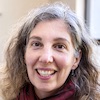
- This event has passed.
Webinar: Developing University-Initiated Offsets and Using Peer Verification
October 14, 2020 @ 3:00 pm - 4:20 pm EDT
FreeThe Offset Network is an online platform for colleges and universities considering the development of their own emission-reducing projects to fulfill carbon neutrality commitments. Self-generated offsets offer greater flexibility than market-based purchases to focus offset investments on projects that directly fulfill academic mission. Campus-initiated projects can expand and apply campus research, directly benefit nearby communities, and offer students applied educational opportunities such as through project co-design, involvement in project implementation and monitoring, and cross-campus peer verification. Self-generated offsets are impactful projects that have appealed to administrators, fulfilling climate goals while promoting community engagement and doing what colleges/universities do best – education, research, public service, and developing and testing climate solutions. The University of California system of ten campuses and Duke University have embraced this approach to offsets. The University of California released a system-wide Request for Ideas (RFI) for University-initiated projects, engaging faculty, staff, students, and researchers in the conception and eventual design and implementation of carbon offset projects towards the system’s 2025 Carbon Neutrality Initiative goal. Duke University has developed a suite of university-initiated offset projects and created a method of peer verification that became the Offsets Network. This panel presentation will discuss UC’s RFI process and Duke University’s experience developing offset projects and going through Offset Network’s peer verification process. The panel will give an overview of the OffsetNetwork.org’s peer verification pathways and invite involvement by other institutions of higher education in developing and peer verifying offset projects.
For members: watch on demand For members: archived webinars on demand Upcoming webinars
Presenters
 |
Camille Kirk, Director of Sustainability and Campus Sustainability Planner, University of California, Davis Camille Kirk provides leadership and direction for campus sustainability efforts and galvanizes action towards key sustainability goals. She is a proven sustainability leader with a breadth of collaborative management and initiative development experience. During her time with UC Davis, Camille has delivered multiple high-visibility projects and programs including the campus’ Climate Action Plan and the Drought Response and Water Action Plan, which provide vision, direction, and support for sustainability efforts across UC Davis. She has undertaken complex performance assessment across a wide variety of sustainability metrics, which has led to numerous top rankings and ratings in sustainability for UC Davis. Camille has launched successful and award-winning communication and outreach efforts to raise visibility and awareness of campus environmental stewardship and sustainability efforts, effect behavior change, and create pride and enthusiasm for campus sustainability achievements. Trained as a systems thinker, Camille holds a master’s degree in Geography from UCLA. |
 |
Barbara Haya, Research Fellow, University of California, Berkeley Barbara Haya is a Research Fellow at the California Institute for Energy and Environment at the University of California, Berkeley. Barbara has researched the design and outcomes of climate policies with a focus on carbon offsets for over fifteen years. She received a PhD from UC Berkeley’s Energy & Resources Group in 2010, where she analyzed the outcomes of the Kyoto Protocol’s carbon offset program. Subsequently, she has researched the expected and actual outcomes of various elements of California’s Global Warming Law, including its offset program, at the Union of Concerned Scientist, Stanford Law School, and now UC Berkeley. She is also researching the quality of offset credits on the voluntary offset market including additionality assessment, and is working with sustainability and energy managers at University of California campuses to explore options for offset procurement. |
 |
Emma Fulop, Program Coordinator, Duke Carbon Offsets Initiative Emma is the Program Coordinator of the Duke Carbon Offsets Initiative, where she works to develop and purchase offsets for Duke University’s climate neutrality goal of 2024. Emma’s background is in land conservation, on both a local and national level, as well as environmental advocacy. In 2019, she received her Master of Environmental Management degree with a focus on Community-Based Management from the Nicholas School of the Environment at Duke University. |
 |
Matthew Arsenault, Program Manager, Duke Carbon Offsets Initiative Matthew recevied a bachelors degree in Political Science from Florida State University in 2010 and began working as a legislative aide in the Florida House of Representatives. After working on a myriad of state-level public policy issues, Matthew transitioned to the Florida Office of Energy, the state’s energy policy office. In his four years at the Office of Energy, Matthew helped administer a solar incentive program, managed clean energy grant projects, and created and served as lead administrator of the Florida Natural Gas Fuel Fleet Vehicle Rebate program. After gaining nearly five years of experience in state government, Matthew enrolled in Duke University’s Sanford School of Public Policy where he received a masters of Public Policy degree in 2017. After completing his graduate degree, Matthew took his current position as Program Manager of the Duke Carbon Offsets Initiative. |